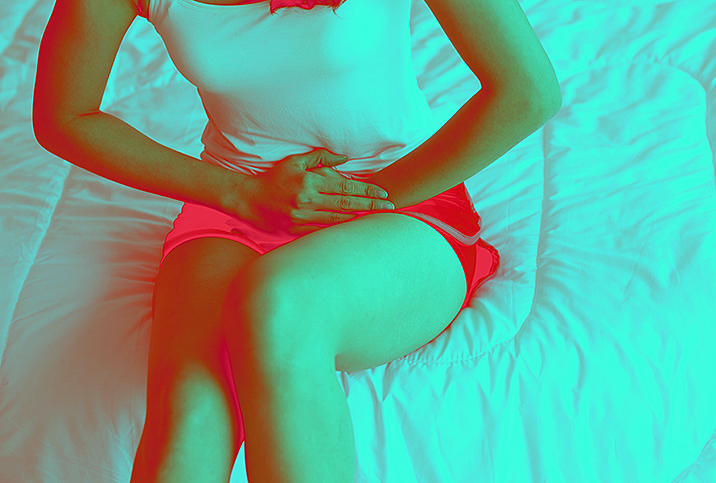Can Sperm Cause a UTI in Females?

Key Points
- A urinary tract infection (UTI) is defined as an infection that occurs anywhere along the urinary tract, a system that includes the bladder, kidneys and urethra.
- UTIs are most often caused by bacteria and affect women more often than men.
- A UTI can result from sexual activity but not from sperm specifically.
A urinary tract infection (UTI) occurs anywhere along the urinary tract. The urinary tract system includes the bladder, kidneys and the tube that is connected to them, called the urethra.
Urinary tract infections are the most common type of infection to occur in humans and most frequently affect females, a 2013 report suggested.
We'll discuss the facts about UTIs, including common causes of urinary tract infections, prevention, and whether or not sperm can be a culprit.
Can sperm cause a UTI in females?
No, sperm doesn't cause UTIs in women, said Monte Swarup, M.D., an OB-GYN in the Phoenix area and the founder of HPV Hub. Microbes cause these infections.
Typically, the microbes that cause UTIs are bacteria—most commonly Escherichia coli (E. coli)—that enter and multiply in the urinary tract.
Sperm, a component of semen, does not contain bacteria. However, sexual activity can increase the risk of UTIs in females, Swarup said.
Why do I keep getting a UTI from my boyfriend, partner or spouse?
As mentioned, sexual activity might cause recurrent UTIs.
"Sex can cause bacteria to shift up the urethra and into the bladder," Swarup said. "This can cause a urinary tract infection as the bacteria multiplies."
In addition to sex, using certain contraceptives—diaphragms and spermicides included—can increase your risk of UTIs.
Is a UTI a sexually transmitted infection (STI)?
"A urinary tract infection is not a sexually transmitted infection," Swarup said. "The bacteria that cause UTIs are already in your body and not passed on from another person."
Sexual activity can introduce bacteria into the urethra, which can cause a UTI. However, UTIs can occur for other nonsexual reasons, including urinary retention, kidney stones, diabetes and a weakened immune system.
STIs are primarily caused by viruses, bacteria or parasites specifically transmitted through sexual contact.
Recommended
- The UTI-Friendly Diet: Can changing your diet help prevent or alleviate a urinary tract infection?
- How a UTI Becomes Life-Threatening: Just because they're common doesn't mean UTIs aren't dangerous. Getting treated is key.
- Can a UTI Clear Up On Its Own?: Thinking of waiting out a urinary tract infection? Here are the risk factors to consider first.
Can contraceptives sometimes cause UTIs?
Certain contraceptives, such as diaphragms and spermicides, can increase the risk of UTIs.
Diaphragms
Diaphragms, barrier contraceptives that are inserted into the vagina, have been linked to UTIs since a 1985 report. Using diaphragms during sex can sometimes place pressure on the urethra, interfering with the emptying of the bladder and creating a breeding ground for bacteria.
Spermicides and spermicide-coated condoms
Some spermicide products contain nonoxynol-9, a chemical that can irritate the genital and urinary tract tissues. This irritates the urinary tract lining, making it more susceptible to infections. Using spermicides more than once a week has been linked to a higher risk of UTIs, according to a 2018 review. Spermicide-coated condoms, in particular, have been shown to increase the risk of UTIs caused by the Staphylococcus saprophyticus bacteria, a 1998 report suggested.
How can I reduce the risk of getting a UTI after sex?
Urinary tract infections are not inevitable. You can reduce the risk of UTIs after sex by following a few simple tips.
Consider different birth control methods
Discuss alternative contraceptive options with your OB-GYN if you are using diaphragms or spermicide-based products. Traditional condoms are an excellent choice, as they provide a barrier between the genitals and sources of bacteria. Avoid condoms coated in spermicide.
Urinate regularly
Urinate before and after sex and before you go to bed. Emptying your bladder can help flush out any bacteria that may have entered the urethra during intercourse, Swarup said.
Drink enough fluids
Drinking plenty of water helps dilute urine and can help flush bacteria out of the urinary tract. Try to drink enough fluids and stay well-hydrated throughout the day. Lowering your caffeine intake can help keep UTIs at bay, a 2020 report suggested.
When do you need to see a doctor for a UTI?
If your UTI is mild, it may clear up on its own. However, you should see a doctor for treatment if your UTI symptoms continue to worsen after a few days, Swarup said.
Your healthcare provider may prescribe antibiotics to speed up your recovery, manage symptoms and avoid complications.
The bottom line
Everyone's body is different, so it's best to talk to your doctor if you are experiencing recurrent UTIs, whether it seems they're connected to sexual activity or not.
Your OB-GYN can help identify underlying factors that may be contributing to your UTIs and suggest appropriate treatment and preventive tips.


















